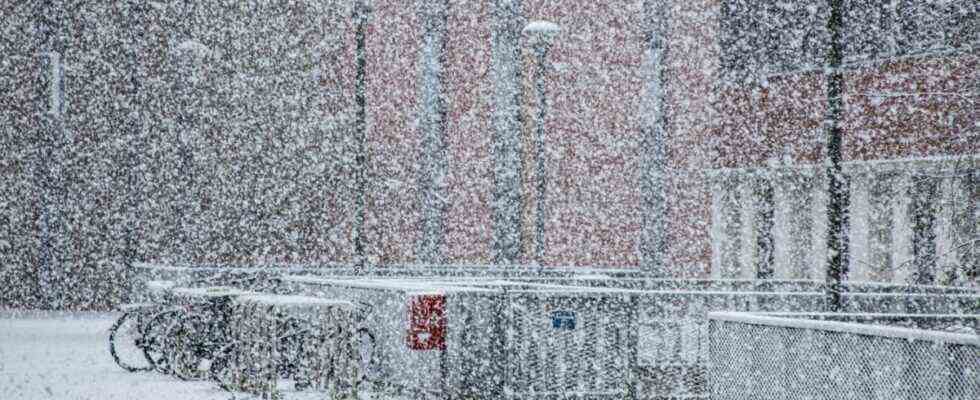The poet Dirk von Petersdorff is in his main job – does that even exist with writers? – a renowned literary scholar and professor in Jena. He teaches about romance, locates poetic fields of force in pop songs and shows how much Clemens Brentano is in Bob Dylan. But is Petersdorff what on the left hand side is called a Poeta Doctus, a learned poet?
Fortunately not, because his poems are not created under the laboratory conditions of scientific thinking, but according to the principle of sensual adaptation. In his new collection “Our games do not end” there are poems that are fine distillates of everyday experience. Some of them confide in the rhyme without shamefully messing up the meter. No, Petersdorff doesn’t need the ironic break when he applies an old subject like the thing poem to his mohair sweater, which in winter also proves itself as a souvenir: “And when it snows, flakes can land that stick, as everything is useful for us – / let this boy go, unharmed, / in the light of the street lamps, unharmed. “
To be on the safe side, Petersdorff borrowed a sentence from the Polish poet Wislawa Szymborska and included it as a poetological underlay in the entablature of his poetry: making pathetic words appear light with effort – this principle guides Petersdorff’s attempt to light his little beacon between the volatility of everyday life and the sublime moment .
Dirk von Petersdorff: Our games don’t end. Poems. Verlag CHBeck Munich 2021. 75 pages, 20 euros.
The fine definition of “less is more, very little is everything” is very clever and pointed. The title stands above one of the most intellectually interesting texts in this volume. In it, Petersdorff shows what the poet learned from the theorist, namely the greatness of being able to do without theory in the poem, or more precisely: on ideas: “This was a long poem, it was about / about physics, about philosophy, about space-time Event was called world point – everything deleted “.
Petersdorff is not interested in the assertion, rather it is about showing the truth that is tested every day: a girl who brushes the sand off her feet, the view from the skylight and finally the detailed description of how the girl’s curls are attached to the edge of the collar approach, the actual world point – this is how Petersdorff steers his poetic process.
“Coloring objects is like rhyming,” it once said, and it reads like a witty poetological counter-speech to those critics who occasionally object to the supposedly too well-oiled rhyming machine in Petersdorff’s poems because it would shred too much of the valuable content. The casualness of his subjects was also criticized, the popular choice of subject, the everyday aroma of his verses. Because in the poems of the 1966 born Petersdorff it is often about very subtle ramifications of the sensationless day experience, about microscopically observed processes and images, also about over-sensitive sound perceptions on the border to imagination, like in the poem “Before falling asleep”.
Of course, adults are also in transition
It evokes childhood memories of a strange tinkling that the little boy heard before he fell asleep. It is the sound that the rain falling on a grating makes, that is what emerges in the middle of the poem. The physical explanation does not sober the adult, because he has known since then “that some evenings are as little needed as a grating and the rain”. One is always a little tempted to be comforted by these texts, but poetry is not there for consolation, but rather serves to delineate an autonomous linguistic and intellectual energy field.
Right at the beginning of the volume is the poem about the thirteen-year-old daughter, a transitional being from child to adolescent. But here the cautious hand of the poet, no, the father intervenes: In transition, of course, are also the adults, whose seemingly stable existence is reflected by the daughter with her exhibited shuffling and monosyllabicism. “When you come into the kitchen in the morning / you look like an owl / put into broad daylight”. The alienation, the distance, the deceptive closeness between the growing girl and the parents – all of this changes the view of the child, who is to be grasped with ever new attributions. Sometimes as a “glorious phantom”, then as a “riddle with curls” and most beautifully: “In summer you shuffle around as November”.
If you read the last poem in the light of this beautiful and touching text, you might think that it ends up being around December. Because the cyclist in “Fahrrad im Winter” could be the daughter. She cycles into a blanket of snow “and then lets go of it, straightens up / opens her arms”. It takes a good portion of poetic exuberance to give your poem this fresh, utopian dangling.
Dirk von Petersdorff: Our games don’t end. Poems. Verlag CHBeck Munich 2021. 75 pages, 20 euros.

